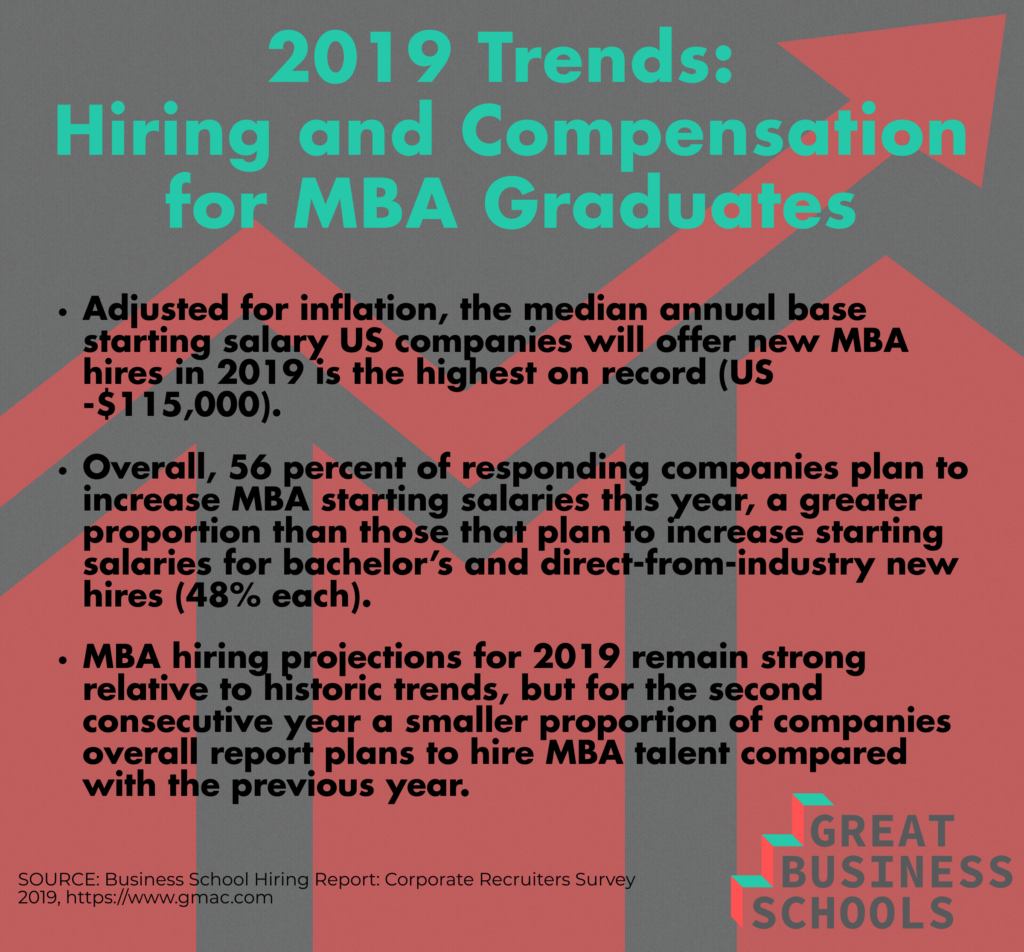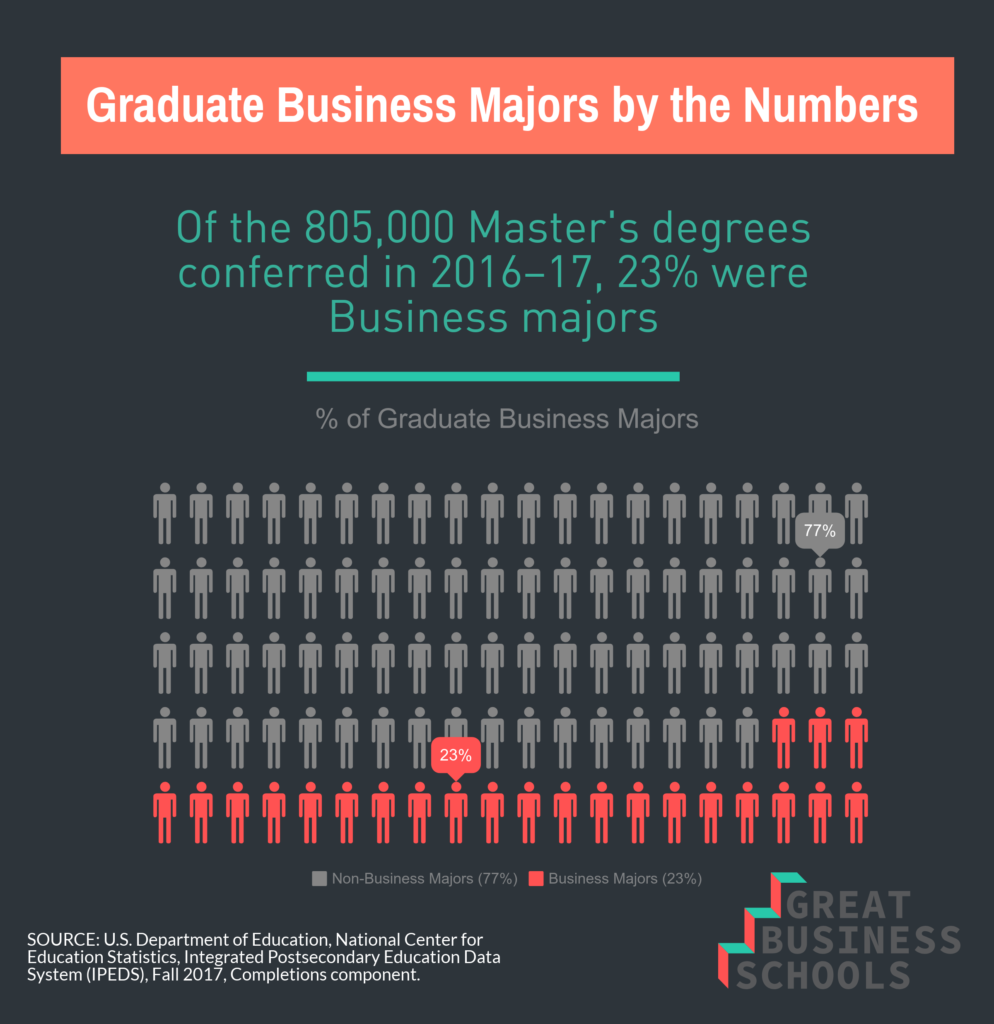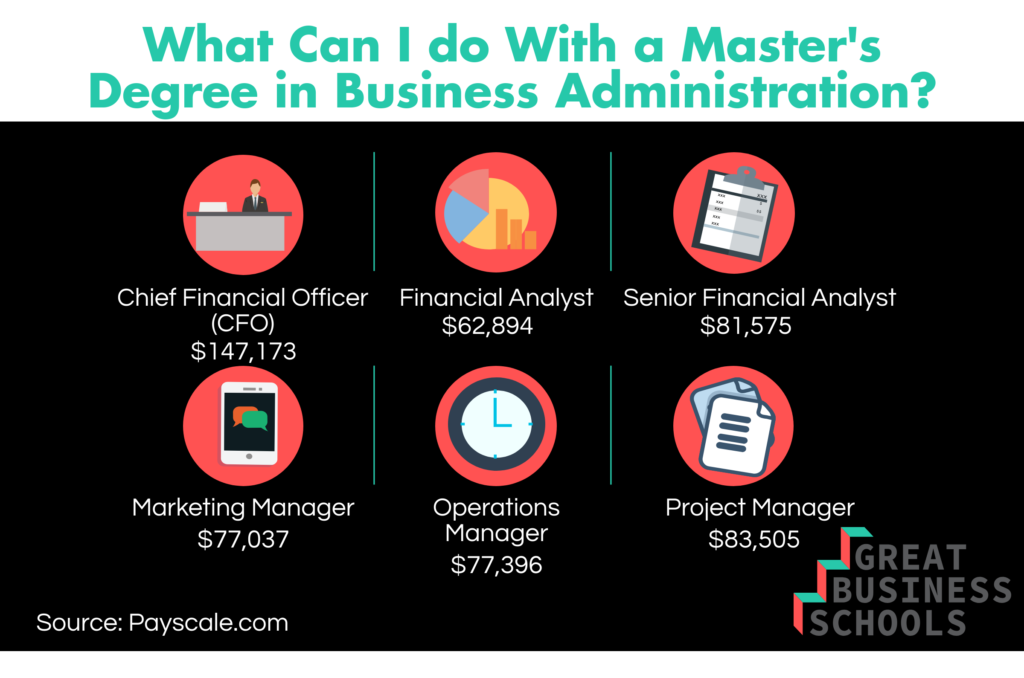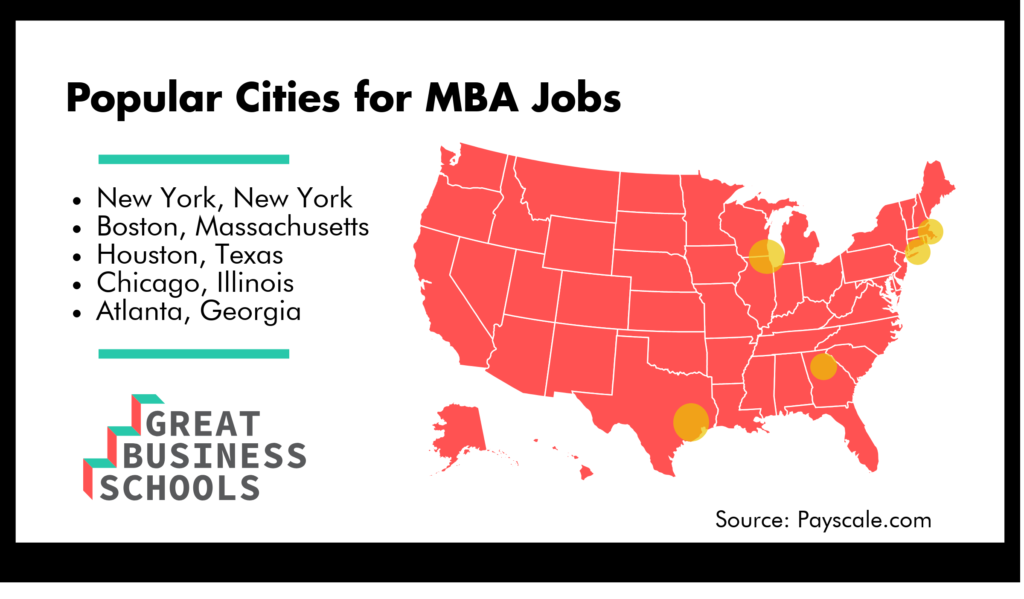What can an MBA do for you? An MBA, or Master of Business Administration, is the next level up from an undergraduate degree. Is an MBA worth it? As with many graduate degrees, the MBA cultivates a deeper level of knowledge and understanding with regard to business management.
What is a Masters of Business Administration Degree? What Can an MBA Do For You?
Because the MBA is a business degree, there are several focuses and specializations that can come with it as well. In just about every aspect, the answer to the question of is an MBA worth it is typically in the affirmative. And there are many reasons why this is the case.
An MBA program will have a strong focus on every aspect of business. This can include coursework in communications, economics, finances, accounting, statistics, and various other disciplines related to business.

The difference between an MBA and an undergraduate business degree is vast. If someone wonders “What can I do with an MBA?” they may want to consider the fact that most executives who hold corporate titles also hold an MBA.
For those who have high aims or aspirations within the business or financial sectors, the answer to what can I do with an MBA becomes obvious. Achieving the status of CEO, CFO, CBO, president, or any other prestigious business positions, often starts with achieving an MBA.
Entrepreneurs, consultants, and others who want to start their own companies can leverage their MBA status to do a lot more to plan, form, finance, and grow their endeavors. What can an MBA do for you? An MBA’s ability to set someone apart from the pack is inherent in the name of the degree itself.
A master’s degree shows someone has gone beyond the principles and applications of a field of study. Instead, this person has achieved proficiency or high-level understanding of that field that goes far above a more general knowledge. For those still asking is an MBA worth it, this degree prepares students to become a leader of leaders in business.
What Kind of Accreditation Should You Look for in MBA Schools and Programs?
As with any school or program, one of the best ways to determine academic quality is with the accreditation status of the program. Accreditation doesn’t always mean the best, but starting a search with a look at business school accreditation can narrow the options down considerably.
What Is Accreditation?
Business school accreditation and educational accreditation in general means a body of experts evaluated the program to make sure it meets certain standards. There are several types of accreditation and several bodies that grant accredited status. Generally, there are two main categories of accreditation, which includes regional accreditation and national accreditation. National accreditation can break down into several more subcategories of accreditation types.
Accreditation establishes a baseline of standards for schools and programs. These standards can apply to the curriculum, the education of the staff, and the way the school or program prepares students. Regional accreditation will typically apply to colleges and universities while national accreditation can apply to programs, specific courses, or types of curriculum.
What is Regional Accreditation?
Regional or institutional accreditation is a type of all-encompassing higher education accreditation that applies to a college or university. The US Dept. of Education and the Council for Higher Education Accreditation give recognition to accreditors at both a regional and national level.
The regional accreditors consist of members of educational institutions within a region of the country. To that end, six regional accreditation bodies exist corresponding to six regions of the country, hence the term regional accreditation.
What is National Accreditation?
National accreditation isn’t locked to a region. Instead, the accrediting body can consist of industry professionals, academics, businesses, and others who join to create standards for a field of study.
National accreditation typically focuses on a specific field or type of program. The term is a little nebulous which is why there are also subcategories of national accreditation. It’s possible to find these listed as programmatic accreditation, specialized accreditation, professional accreditation, and other terms.

Which Accreditation Type is Best?
Schools and programs must voluntarily seek their accredited status. A school or program can have accreditation from numerous sources, and don’t necessarily have to choose one type over another. For example, a college can have accreditation from regional and other institutional accreditors.
That same college can also have an MBA program or path with business school accreditation. The more accreditation a school or program has, the better. However, accreditation isn’t always indicative of quality, just a good place to start.
What Kind of Accreditation Should an MBA Program Have?
There are several business school accreditation bodies and various types of business school accreditation. In most cases, applicants will want to look for prestigious or well-known accrediting agencies that deal primarily with the standards of business programs, and MBA programs specifically.
This is important, as some reputable accrediting agencies may only work with programs of a particular degree level. A great accrediting agency that sets standards for business programs at the bachelor’s level won’t necessarily set standards at the masters or greater level.
When it comes to MBA business school accreditation, the top three accrediting bodies include:
- Association to Advance Collegiate Schools of Business (AACSB)
- Accreditation Council for Business Schools and Programs (ACBSP)
- International Assembly for Collegiate Business Education (IACBE)
The AACSB accreditation standards will usually show up as the recognized and prestigious for business accreditation. As the preeminent business school accreditation body, any program and MBA degree earned will have recognition throughout the business sector.
What does AACSB accredited mean? The standards set by the AACSB are high and many business schools and programs go out of their way to gain AACSB accreditation status. Nevertheless, it’s easy for an applicant to assume the AACSB accreditation standards are all they should look for in a school or program.
Is AACSB accreditation important? Not as important as other aspects of the school or program. Any school or program with AACSB accreditation is worth consideration, but choosing an MBA program comes with considerations for the applicant that may trump this accreditation status. In addition, other prestigious, noteworthy, and recognized business school accreditation groups exist besides the AACSB.
Another thing to note is that AACSB accredited online undergraduate schools and AACSB accredited online MBA programs do exist, but this group maintains a stronger concentration on traditional college or university MBA programs. So, some applicants may find it beneficial to not chase the AACSB accreditation status if they’re choosing a non-campus route.
The ACBSP and ACBSP accreditation standards have a larger focus on producing effective educators who produce driven graduates who are ready to tackle modern business problems with modern business solutions. In contrast, the AACSB accredited programs can often have a more scholarly approach to the coursework.
Is the ACBSP respected? Yes, the ACBSP accreditation standards and ACBSP MBAs hold wide recognition in the business sector and related fields. Because this accreditor stands in the shadow of the larger AACSB, some may think ACBSP accreditation good or bad, isn’t as worthwhile as accreditation from the larger group. This couldn’t be further from the truth.
IACBE accredited schools and programs have standards that create a focus on finding effective solutions rather than just scholarly learning or dogmatic practices. Accreditation from the IACBE has grown in popularity over time and does hold industry recognition.
The IACBE accredited schools and curriculums will stress practical problem-solving at the executive level. These schools will also produce graduates who are ready to start setting high-level goals and finding the solutions to obtain them.
Other business school accreditation bodies exist as well. If an applicant comes across an unrecognizable accrediting group, they should do a little research to make sure the group is reputable, respected in the field, and whether a degree with that accreditation attached to it can help them succeed in their goals.
What Are the Different Types of MBA Degrees?
There are multiple ways to look at MBA degree types. The way someone achieves their MBA can represent a type of MBA. In this case, that means the format or program type the student uses to pursue their MBA. In addition, a specialization or concentration can also represent the type of MBA.
MBA Specializations and Concentration Types
As an MBA is a business degree, numerous specializations or MBA degree types exist. Students will typically complete core courses first, then move on to a concentration or niche. Some MBA degree specializations include:
- Accounting
- Business Management
- Consulting
- E-Commerce
- Economics
- Entrepreneurship
- Finance
- Global Management
- Human Resources
- Information Systems
- Marketing
- Operations
- Risk Management
Practically anything can become a specialization since business management can apply to any endeavor. Beyond these specializations, it’s also possible to have concentrations centered on a specific industry. For example, a non-profit or entertainment concentration can also become an MBA degree type.

MBA Program Formats, Categories, Types
When making an MBA program comparison or searching for the top MBA programs in the world, applicants may notice various types of MBA programs. For example, MBA program types can include:
- Traditional full-time MBA programs
- 1-Year Full Time MBA Programs
- 2-Year Full Time MBA Programs
- Executive MBA Programs (EMBA)
- Part-Time MBA Programs or Professional MBA Programs (PMBA)
- Online MBA Programs
- Early Career MBA Programs
- Global MBA Programs or International MBA Programs
- Accelerated MBA Programs
Each of these program types denotes a specific number of years required for degree completion. Some MBA degree types can also include a prerequisite of required industry experience. A two-year degree program represents the most traditional path towards an MBA.
With so many types, an applicant can become overwhelmed. The top MBA programs in the world and the best universities for MBA applicants aren’t always going to offer every type of MBA degree.
When making MBA program comparisons, applicants should pay attention to what type of program is being offered. With an understanding of the program types, applicants can also narrow their choices even further, as well as refine their searches.
For example, someone may start by searching for the top MBA programs in the world, narrow that to the best MBA programs in USA, then start looking at the best universities for MBA courses. But, for the applicant that is currently working, a traditional full-time program with a full-time course load might not be the most ideal choice for them.
Now the applicant can start to look at the best part-time MBA programs or the top part-time MBA programs in or around a specific location. A list of MBA programs that’s too broad can only add confusion, so choosing a degree type before making a broad search for say, “the best affordable MBA programs in the world”.
After all, most applicants don’t want the best affordable MBA programs in the world. They very likely just want the best MBA programs in the US or maybe the best part-time MBA programs in their particular state.
Reputable MBA programs in the US coupled with part-time instruction do exist, so applicants shouldn’t feel they need to search too far and wide to come up with a list of MBA degree paths that include schools with MBA accredited programs and an emphasis on flexibility.
Are There Online MBA Programs? Are Online MBA Degrees Worth It?
MBA programs aren’t limited to campuses and schools. Accredited online MBA programs do exist. However, the best online MBA programs and online MBA courses follow the same rules as any other type of degree program.
Applicants should still look for accredited online MBA programs. They should not assume that just because the online MBA courses aren’t on campus there aren’t reputable accreditors for the programs. All the major accreditors and other business degree accrediting groups set standards for the best online MBA programs.
In addition, applicants may assume online MBA cost isn’t comparable to campus programs. In truth, these online MBA courses and programs can have a similar cost to their campus counterparts. On average, online MBA cost does tend to have a cheaper price tag, but that’s not a given. Besides, just as with any school, the online MBA programs cost isn’t the whole story when it comes to paying for education.
This all means that applicants shouldn’t necessarily look for the cheapest online MBA program or the easiest online MBA programs. Choosing a proper program comes with all the same considerations that go with choosing any graduate education.
Applicants must find affordable online MBA programs that fit their needs. In some cases, that may just turn out to be the cheapest online MBA, but the focus at the start should not center on an online MBA programs cost.
Affordable online MBA programs will still need to adhere to standards and offer superior education for those who choose to pursue their master’s. The easiest online MBA programs may help an applicant sail through, but that doesn’t mean the industry will respect the degree. The cheapest online MBA programs in the USA can easily become a waste of time if the applicant doesn’t vet the program seriously and comb over all its details.
Is an online MBA worth it? As stated, the best affordable online MBA programs hold as much worth as any other type of MBA. For any who wonders is an online MBA worth it, the answer is always yes. As long as applicants treat the selection process seriously. They should look for reputation, and ascertain accreditation status. Even the cheapest online MBA in the world can represent a respected MBA degree.
One thing to keep in mind is that online MBA programs no GMAT testing and poor reputation are not a good mix. The cheapest online MBA no GMAT combination can seem ideal for those who don’t want or need GMAT testing. But, these online MBA degree programs should also have excellent standing and status.
What Are Accelerated MBA Programs?
How long does it take to get an MBA online? That depends on the program type. Accelerated 12 month MBA programs online do exist. Just as the name implies, accelerated MBA programs online and off can allow someone the ability to achieve their MBA in a year or less.
As the shortest online MBA programs, the curriculums tend to have a fast pace and a full course load. Accelerated MBA programs online are plentiful, but applicants should know if they’re fully prepared to tackle a 12 month online MBA. While 12 month MBA programs online can seem ideal, they’re not for everyone.
If considering 1 year MBA programs online, applicants must make sure the program will offer them what they need to achieve their goals. In addition, 1 year MBA programs online should still go through a vetting process. They’re the shortest online MBA programs, but they’re not all the same.
Accreditation still matters with accelerated MBA programs online. Also, applicants should weigh their options. Someone may think they want a 12 month online MBA but what they really need is a part-time MBA program.
What Are Executive MBA Programs?
Executive MBA programs, or EMBA, is a type of part-time MBA program designed for people who already have some experience with leadership or executive roles. Often, these types of programs come with sponsorship or tuition from someone’s employer.
Is an executive MBA worth it? In many cases, an executive MBA program can help someone advance, especially if their lack of a master’s degree is what held them back. For those who already have a career in the business field, asking is an executive MBA worth it will require them to consider their position and goals.
The best executive MBA programs online can help someone achieve more in their profession. However, the best executive MBA programs online can also become a challenge for someone already busy with their career.
Applicants will have to weigh their options carefully when choosing this MBA degree program. If an employer sponsors the applicant’s attendance, then choosing an executive MBA can make a lot more sense.

What Types of Careers Are Available With an MBA?
An MBA lends itself well to a plethora of job and career types. Obtaining a job with an MBA degree shouldn’t pose an issue for any graduate.
Entry level MBA jobs and jobs for recent MBA graduates are out there, but so are numerous other job opportunities graduates can consider simply because they have a master’s degree or a business degree in general. Also, the MBA works well with entrepreneurship, so there’s really no limit to the possible careers for MBA graduates.
What are the job opportunities after MBA? Entry level MBA jobs include management or assistant management positions in practically any business. Analyst jobs, such as financial analysts and business analysts are also good examples of entry level MBA jobs.
Entry level jobs for MBA graduates also tend to vary depending on the industry. For example, careers for MBA graduates at the entry level can include public relations manager for one type of industry, but that same position may require a more seasoned MBA holder for another industry.
Many graduates already have some business experience they picked up before pursuing their MBA, so they rarely wonder how to get a job after MBA. Often, pursuing an MBA is specifically tied to doing what’s necessary to gain access to better positions. Nevertheless, that’s not the case for everyone.
Some may ask what can I do with an MBA and no experience and still need help with how to get a job after MBA. The best jobs for MBA graduates with no experience tend to consist of internships and anything specifically listed as entry level jobs for MBA graduates. Many businesses want someone with an MBA and don’t particularly require them to have experience.
Applicants who peruse job listings can often come across opportunities that specifically state they have jobs for recent MBA graduates. Still, the best jobs for MBA graduates with no experience can depend on what the graduate wants to achieve. The best job for MBA graduates with no experience is the one that will help them grow in their desired field.
What are the job opportunities after MBA that offer the most pay? Some of the highest paying jobs for MBA graduates include:
- Chief operating officer
- Financial manager
- Management consultant
- Senior marketing manager
- Senior strategy manager
Graduates should understand that the highest paying jobs for MBA graduates will often depend on location and demand.
What Type of Salary Can an MBA Graduate Expect?
As with most career fields, salary can vary widely based on numerous factors. In the case of MBA graduates, the factors influencing salary can include experience, location, field, specialization, and other things as well. Across the board, $~86k represents the average MBA salary. Understand that number includes all experience levels and disregards location. Some report an even higher average for MBA graduates, with an expectation of growth.
By contrast, the entry level MBA salary sits at ~$53k. Still, even the entry level MBA salary will depend on the previously mentioned factors. That entry level salary also encompasses an MBA with no experience salary numbers. Experience matters a great deal, so an MBA with no experience salary can and will grow exponentially as the graduate gains necessary time and experience.
MBA entry level jobs salary is one thing, but an MBA also comes with some particularly lucrative job and career opportunities as well. The highest paying MBA specialization will depend on the needs of the industry and business. However, by many accounts, the highest paying MBA specialization is strategic management, and generally any strategy concentration.
Are There Any Professional Organizations for Business Administration?
Hundreds of professional organizations exist for business administration professionals and degree holders. The business field is impossibly large and fits into thousands of niches. Because of that, finding professional organizations for this field isn’t hard. Organizations exist as the local, state, national, and international level.
Professional organizations offer opportunities, insights, and most importantly, networking. The more prestigious groups can consist of industry professionals who set trends, create standards, and make wide sweeping decisions. Even at the local level, developing a relationship with local business leaders can open a lot of doors.
One of the larger and well-known organizations is AMA. However, professional organizations for business management are absurdly numerous. Those pursuing their MBA and graduates alike would do well to look into if their school, town, or county has any professional business associations. Graduates should search for those professional associations that fit their specializations.
Carrie Morris
Author
Warren Dahl
Editor-in-Chief

